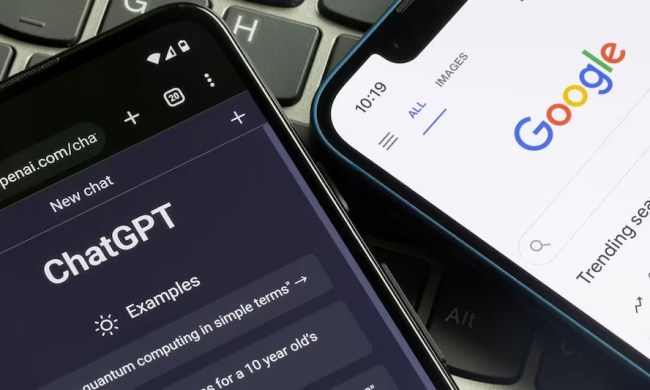Google published a research paper in the scientific journal Nature stating it achieved quantum supremacy. The company says its 53-bit quantum “Sycamore” processor computed a task in 200 seconds. That same task would take the current world’s fastest supercomputer 10,000 years.
“Unlike classical computing, which runs everything from your cell phone to a supercomputer, quantum computing is based on the properties of quantum mechanics,” says engineering director Hartmut Neven. “As a result, quantum computers could potentially solve problems that would be too difficult or even impossible for classical computers.”
The “classic” computers we use today rely on data broken down into processed electrical bits. Each bit can only exist in one state: Either “on” (1) or “off” (0). Quantum computing, however, breaks data down into quantum bits, or qubits. They’re based on elemental particles — photons and electrons — that can exist in multiple states simultaneously.
The declaration officially arrives after the research paper briefly appeared on NASA’s website. IBM’s head of research Dario Gil disputed Google’s claim in September, saying the company is “just plain wrong.” Unlike IBM’s efforts in quantum computing, the system Google built only solves a single problem. It’s not a “general-purpose computer.”
Others in the industry applaud Google for reaching this milestone. While the test is limited to a single task, Google managed technical breakthroughs that pave the way for quantum computers.
Daniel Lidar, an engineering professor at the University of Southern California, told The Financial Times that Google’s system produced error rates lower than test systems built by other researchers. This is due to a reduction of “crosstalk,” or the interference of neighboring qubits. Google also seems to have a better handle on controlling quantum states.
Google’s successful test doesn’t have any practical use. Instead, the company merely demonstrated how a quantum computer should work.
In an interview published alongside the research paper, Google CEO Sundar Pichai compared the breakthrough to the first flight performed by the Wright brothers. You must start somewhere, he says, as the first plane only flew for 12 seconds. That’s not a practical application, but instead created opportunities. Now we’re flying all over the world and into space.
According to the paper, quantum computing is “only one creative algorithm away from valuable near-term applications.” Pichai said that quantum mechanics “shines” when simulating molecules and molecular processes. Possible applications include reducing emissions emitted during fertilizer creation, developing life-saving drugs not possible using “classic” computing, designing better batteries, and more.
But applications like these won’t arrive for another 10 years.
“We are still a few years away from scaling up and building quantum computers that will work well enough,” he said.


